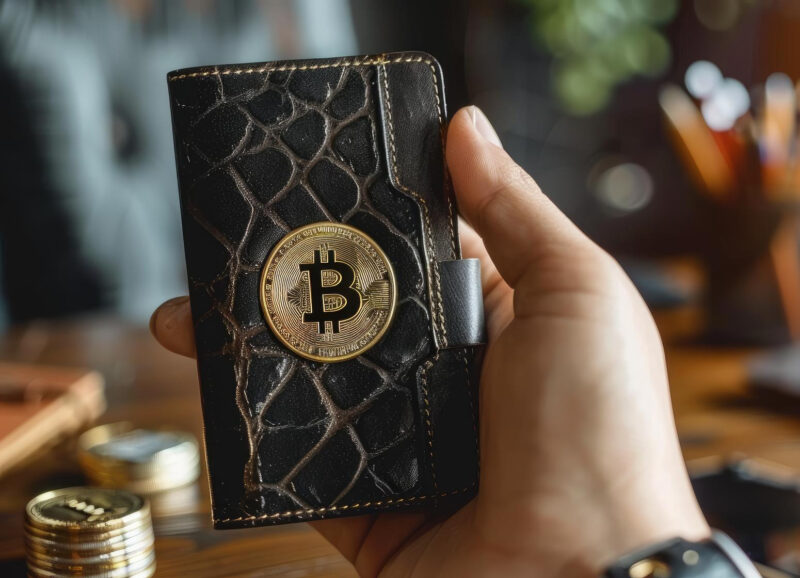Knowing how to protect Bitcoin is as important as getting the right suburb.
As the appetite for property investment shifts, an alternative type of asset is gaining traction nationwide. Bitcoin is increasingly becoming an alternative investment path, standing alongside brick-and-mortar in people's minds. The possession of “btc aud” value is more often part of the discussion, with more Australians becoming interested in how they can diversify the contents of their portfolios.

Appreciating the Movement from Property to Crypto
The move from property to digital assets reflects wider Australian thinking on long-term value. Just as houses in desirable locations yield capital gain and security, Bitcoin is a global and liquid alternative. Bitcoin in Australian dollars means exposure to a market that is always on, driven by universal trends.
As Binance co-founder Yi He highlights, "Crypto isn’t just the future of finance—it’s already reshaping the system, one day at a time." Such forward thinking puts this emerging investment narrative in perspective. For many Australians familiar with real estate cycles, the draw is really diversification and accessibility.
Unlike property, which often involves significant upfront capital, Bitcoin can be owned in small pieces, with exposure that is devoid of the barriers of deposits, loans, or lengthy settlement processes. According to the market data provided by Binance, the market capitalisation in the BTC AUD market exceeds A$3.4 trillion, underscoring its size and importance as a financial system.

Tip: The comparison highlights how digital assets are not replacing property but complement established investment thinking by unlocking new forms of value creation.
Establishing Your Wallet and Holding Bitcoin Securely
Converting into the ownership of Bitcoin is based on choosing the safest digital wallet. The focus is placed on the safety of holdings, as the title and sanctity of property would be insured. The Binance Insights Hub reports and alerts indicate the value of transparency in crypto transaction tracing.
The Global Head of FIU at Binance says, “Despite high-end privacy tools, every crypto transaction leaves a trace – a vital asset for new-age law enforcement. As crypto crime becomes increasingly sophisticated, global cooperation and strong public-private partnerships are no longer optional but mandatory.”

Note: This underscores the fact that Bitcoin is often associated with opacity, but ownership of Bitcoin can be safely secured and tracked.

Understanding Market Dynamics and ‘BTC AUD’ Pricing

Note: Just as property prices swing with the force of the economy, so does cryptocurrency.
Data from the cryptocurrency marketplace Binance shows that the current Bitcoin market cap is just over A$3,400 billion, with a 24-hour trade volume of just over A$67.85 billion, based on exchanges from BTC to AUD.
These figures indicate liquidity and marketplace demand for digital currencies, and they act to position Bitcoin within the context of the Australian investment landscape. This data provides valuable insight into how Bitcoin is held and valued in Australian dollars.
From Global Trends to Local Perspectives
Bitcoin investment is driven by far more than the laws of supply and demand. Global regulation shifts, institutional investor attitudes and overall macroeconomic directions all play a part.
The Binance Insights Hub content examines how rapidly evolving events within the cryptocurrency sphere influence investors' psychology, highlighting how narratives and official decisions shape value. Understanding these drivers is essential for explaining fluctuations in price, as well as their long-term outlook, and for identifying parallels that move in the same direction as property markets in response to regulatory changes or economic shifts.

The Practicalities of Holding Bitcoin in AUD
For investors accustomed to patterns of property investing—incentives, mortgage, conveying—ownership of Bitcoin is now the more thrilling option. Transactions in cryptocurrency can be completed worldwide in seconds and stored in various forms, such as hardware wallets, exchange wallets, or custodian services, all of which are run with high-level security.
Each is associated with multiple levels of management, risk, and accessibility—a comparison akin to choosing between purchasing a property with a freehold, strata, or off-the-plan title. Beyond the storage issue, investors must also consider notice and account management.

Note: Unlike property, which sometimes involves property management services or inspections, digital assets require continuous notice of security updates, wallet integrity, and a history of transactions.
Making and taking choices between self-custody and third-party custodian services may also affect management and convenience.
Self-custody allows for the ultimate management of holdings but requires high-level security measures, whereas custodian services involve maintenance and recovery, but may limit immediate use. The options offer flexibility similar to property title options, providing various engagement levels, risk and administration responsibility.

A Strategic Complement, Not a Replacement
Besides the switch from bricks to blocks, this doesn't necessarily mean replacing one type of investment with another. Keeping Bitcoin in the AUD offers portfolio diversification and liquidity, particularly when foreign markets influence local ones.
News from Binance’s Insights Hub offers expert commentary, emphasising that “every crypto transaction leaves a trace,” which reinforces the importance of transparency and security, even in the digital realm.
As Australians weigh exposure to property and crypto, the fundamentals remain the same: a clear definition of ownership, informed buying decisions, and a grasp of market dynamics. Through brick, through mortar, and through digital blocks, the goal remains the same: to build lasting value.














